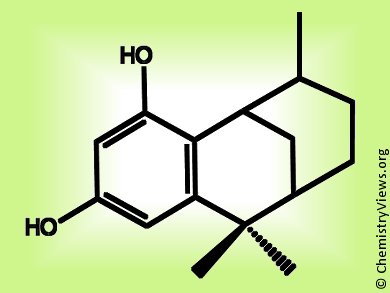Chemists at Northeastern University, USA, and their colleagues explain how derivatives of the natural product resorcinol can be used to build other natural products and various pharmaceutical products. They have developed a synthetic route that begins with (+)- and (–)-3-pinanol to generate a compact tricyclic resorcinol (pictured). The team suggests that this synthesis could facilitate the development of new agonists or antagonists for the brain’s cannabinoid receptors, including novel analogs of conformationally restricted cannabinoids.
Such compounds will not only open up research into the function of the receptor but will also point the way to putative analgesic drugs for use in multiple sclerosis and other conditions and perhaps as appetite modulators for the treatment of obesity.
- Synthesis and characterization of a compact tricyclic resorcinol from (+)- and (–)-3-pinanol,
Dai Lu, Spyros P. Nikas, Xiu-Wen Han, Damon A. Parrish, Alexandros Makriyannis,
Tetrahedron Lett. 2012, 53, 4636–4638.
DOI: 10.1016/j.tetlet.2012.05.165




